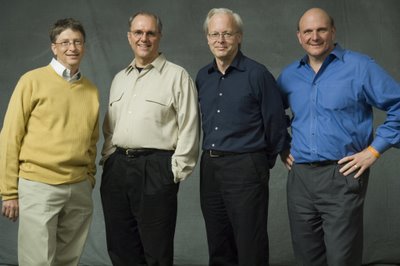
A while ago some friends and I took advantage of a spring day and went off road exploring. I took some pictures of some of the terrain. This picture above of the Jeep axle deep in mud reminded me a bit how things feel these days at work. It's just part of the cycle. I've been here before, but it's still slow and muddy.
In an attempt to optimize things, today we got together with two other small teams we work with and invested the day working out our backlog. We're all pretty new to this agile method, but our daily standup meeting has been so successful that we thought it might be a good idea to get all the projects we are working on out on the table. Boy was this an eye opener. Every member of our team was juggling a lot of projects!

For me at least, this concurrency was taking its toll. It's easy to think, "I'll just spend 10% of my time on project A, then 15% of my time on project B, 25% on project C, 10% on D, E and F and lastly 20% on project G." The reality is that even just trying to split your time up between 7 projects is unrealistic. You can't even measure that well, without some very disciplined time tracking. But when the reality is that you need to be making forward progress on even more than 7 projects, well, things don't just get slower, they get worse. The more I multitask, the more mediocre stuff I produce. That's in addition to the fact that everything takes forever to deliver. Sure, my "scope of influence" might be broad, but when so thinly spread, I wonder if my influence is worth anything at all.
Well, after the meeting we had all 60+ projects arranged in the sequence that we'll attack them. What's great about this backlog is that not only can I see clearly the 3 projects that that are most important (not that that was a revelation), but those who work with me, depend on my work, or ask for new stuff can easily see:
1. Our priorities
2. What would have to shuffle for something new
3. Where I'm spending my time,
4. and at what cost to other things I could be doing.
I'm hopeful that this transparency makes discussing projects and timelines more real. We'll see. Another less tangible advantage of this whole backlog is that it serves as kind of a group memory. I can mentally forget about other projects knowing that they are recorded on the backlog and we'll get to them when we have time, but until then, focus on the core tasks and the other parts will take care of themselves in due time.
After all this, I was thinking about how I've allowed myself to get defused by multitasking rather than focused on the most important projects that require my focused attention. I've come to the conclusion that for me, shipping or "getting to done", is a habit, and I need to make it something that happens in some way or another, large or small, in a repeatable, regular fashion. It just makes for healthy closure to things and provides a chance to end, so that you can begin again.












